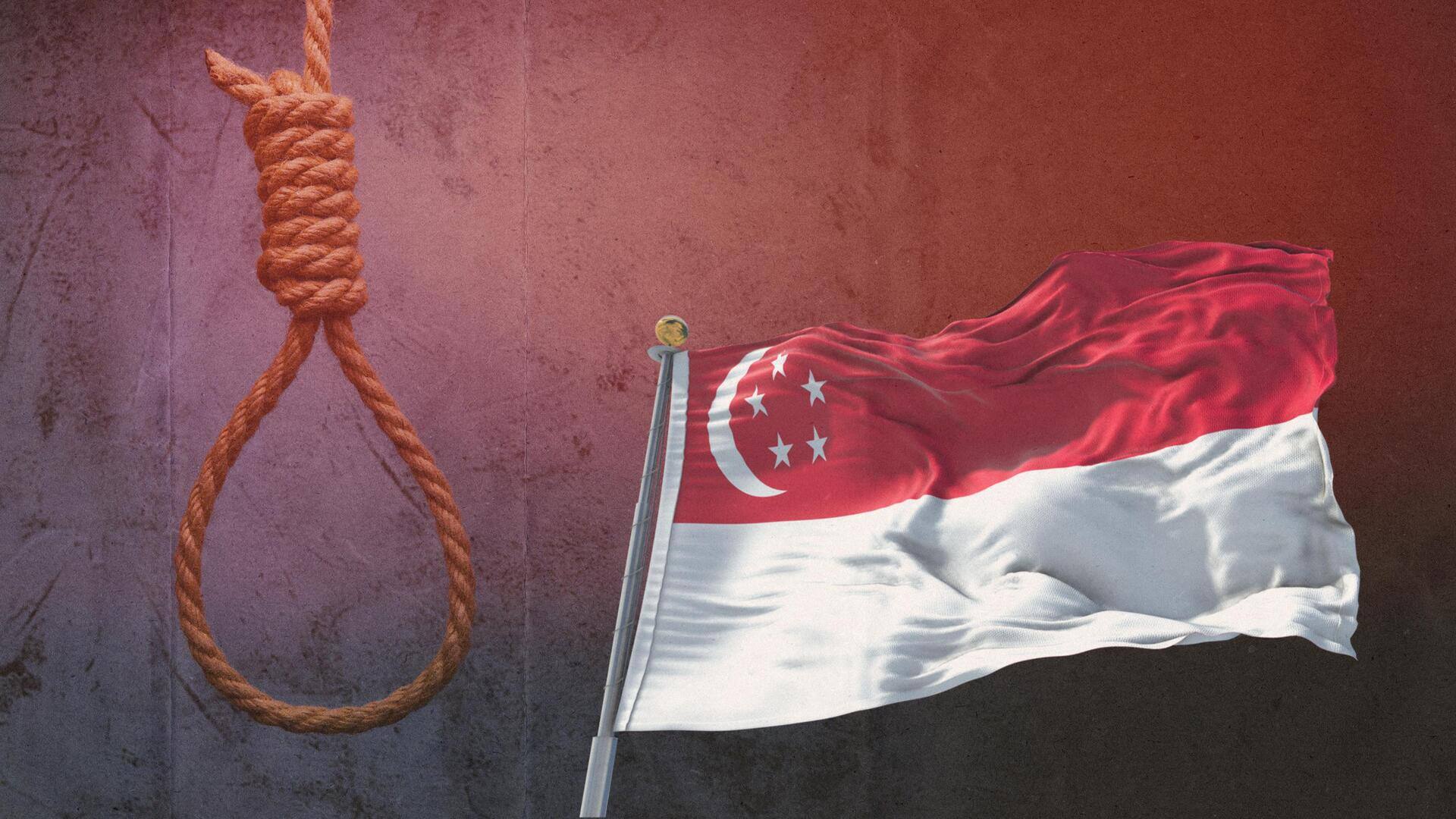
Singapore to execute first woman in 20 years
What's the story
Singapore is reportedly set to execute a woman on Friday for drug trafficking, the first female execution in nearly 20 years. Singaporean national Saridewi Djamani (45) was sentenced to death for trafficking 30 grams of heroin in 2018. She will be the second convict to be executed for drug offenses in three days after Mohammed Aziz bin Hussain, and the 15th since March 2022.
Context
Why does this story matter?
Singapore reportedly has some of the world's toughest drug laws. The city-state's authorities argue that strict drug laws are necessary to protect society and help keep Singapore as one of the world's safest places. It claims that capital punishment for drug offenses is widely supported by its citizens. However, such claims are refuted by people against the death penalty.
Testimony
Last woman was executed in 2004 for drug offenses
Djamani testified during her trial that she was stocking up on heroin for personal use during Ramzan. The judge noted that she didn't deny selling drugs from her house but downplayed the scale of the activities. In 2004, 36-year-old hairdresser Yen May Woen was executed for drug trafficking. The execution of Nagaenthran K Dharmalingam, who reportedly had a mental disability, sparked outrage last year.
April
Man executed on Wednesday for trafficking heroin
Hussain, a 56-year-old Singaporean Malay man, was executed at Changi Prison on Wednesday. He was sentenced to death in 2017 for trafficking 50g of heroin. Hussain appealed against the death penalty, but it was dismissed after what Singapore's Central Narcotics Bureau (CNB) called "full due process." Singapore's law warrants capital punishment for trafficking over 15g of heroin and 500g of cannabis.
Details
Drug offenses don't fall into 'most serious crime' category
In April, another Singaporean, Tangaraju Suppiah, was executed for trafficking 1kg of cannabis. While Suppiah never touched the contraband, authorities said he coordinated its sale through calls. The Transformative Justice Collective—which tracks death row cases—said international law restricts the death penalty to "most serious crimes." It said drug offense executions fail to meet the criterion under the International Covenant on Civil and Political Rights.
Reports
Singapore's law not disrupting cartels, catching only low-level traffickers
Transformative Justice Collective added that Singapore is among the few countries, including China, Iran, and Saudi Arabia, that have executed individuals for drug offenses in 2022. In September 2022, law minister K Shanmugam accepted that their policy didn't result in the arrest of any drug "kingpins." He said only "small guys" were caught because the strict laws deter "big guys" from coming to Singapore.
UN
No evidence that death penalty has unique deterrent effect: Amnesty
In July 2022, eight United Nations Special Procedures experts observed that a disproportionate number of minority people were being sentenced to the mandatory death penalty in Singapore. Meanwhile, Amnesty International death penalty expert Chiara Sangiorgio said, "There is no evidence that the death penalty has a unique deterrent effect or that it has any impact on the use and availability of drugs."